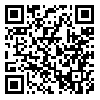Volume 27, Issue 1 (4-2021)
Back to this Issue |
Back to browse issues page
Download citation:
BibTeX | RIS | EndNote | Medlars | ProCite | Reference Manager | RefWorks
Send citation to:



BibTeX | RIS | EndNote | Medlars | ProCite | Reference Manager | RefWorks
Send citation to:
Darbandi I, Mohamadzadeh Zarankesh S, Kordbagheri M, Zolfaghari M. The effect of online support and e-content on communication skills of nurses with patients. Journal of Hayat 2021; 27 (1) :28-44
URL: http://hayat.tums.ac.ir/article-1-3969-en.html
URL: http://hayat.tums.ac.ir/article-1-3969-en.html
1- Dept. of E-learning in Medical Education, Virtual School, Tehran University of Medical Sciences, Tehran, Iran
2- Dept. of Nursing, School of Nursing and Midwifery, Islamic Azad University, Tehran Medical Sciences, Tehran, Iran
3- Dept. of Statistics, Shahid Beheshti University, Tehran, Iran
4- Dept. of E-learning in Medical Education, Virtual School, Tehran University of Medical Sciences, Tehran, Iran; Nursing and Midwifery Care Research Center, School of Nursing and Midwifery, Tehran University of Medical Sciences, Tehran, Iran ,zolfaghm@tums.ac.ir
2- Dept. of Nursing, School of Nursing and Midwifery, Islamic Azad University, Tehran Medical Sciences, Tehran, Iran
3- Dept. of Statistics, Shahid Beheshti University, Tehran, Iran
4- Dept. of E-learning in Medical Education, Virtual School, Tehran University of Medical Sciences, Tehran, Iran; Nursing and Midwifery Care Research Center, School of Nursing and Midwifery, Tehran University of Medical Sciences, Tehran, Iran ,
Abstract: (3312 Views)
Background & Aim: Considering the importance of communication skills in nursing, we aimed to study the impact of online support and e-content on communication skills of nurses with patients.
Methods & Materials: In this quasi-experimental study with pre- and post-design, 100 nurses employed in the orthopedic wards of Chamran hospital affiliated to Shiraz University of Medical Sciences in 2018 were selected randomly and assigned into two groups of 50. Both groups received the electronic content of communication skills. In the intervention group, in addition to receiving educational content, online support was provided through social media for four weeks with the presence of a psychologist, so that by asking real questions and problems or simulated scenarios, appropriate behavior in that situation was discussed. Before and eight weeks after the intervention, communication skills in the both groups were assessed by the Burton Jay's Communication Skills questionnaire, and data was compared using independent t-test and analysis of covariance.
Results: The results showed that there was no significant difference between the two groups in the communication skills score before the intervention, but eight weeks after receiving the e-content, the participants' scores increased in the both groups. This increase was greater in the online support group (P<0.001). In fact, online support caused a difference (0.637) in the communication skills score between the two groups.
Conclusion: The results of this study showed the provision of e-content along with online support has led to the improvement of communication skills. It is recommended that in addition to education through e-content, social media be used in the empowerment programs of the treatment team including communication skills improvement, due to their advantages such as ease of use, availability and relatively low cost.
Clinical trial registry: IRCT20090127001599N27
Send email to the article author
| Rights and permissions | |
 |
This work is licensed under a Creative Commons Attribution-NonCommercial 4.0 International License. |






